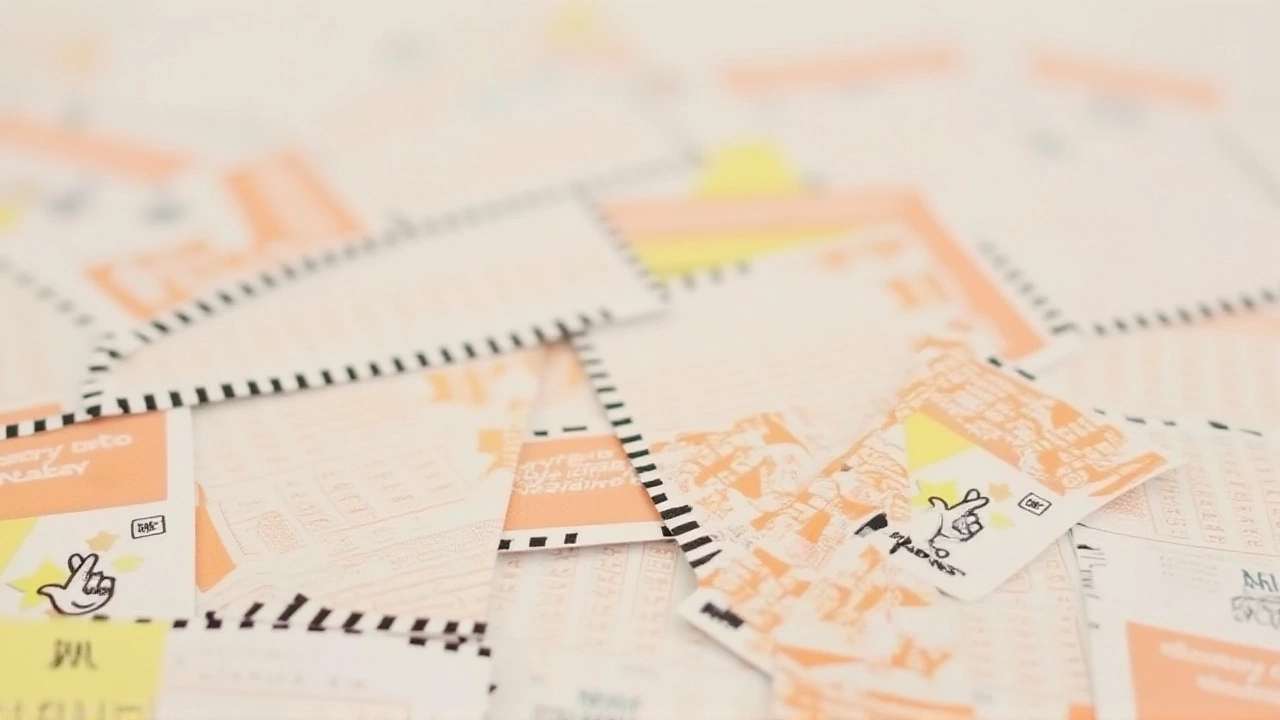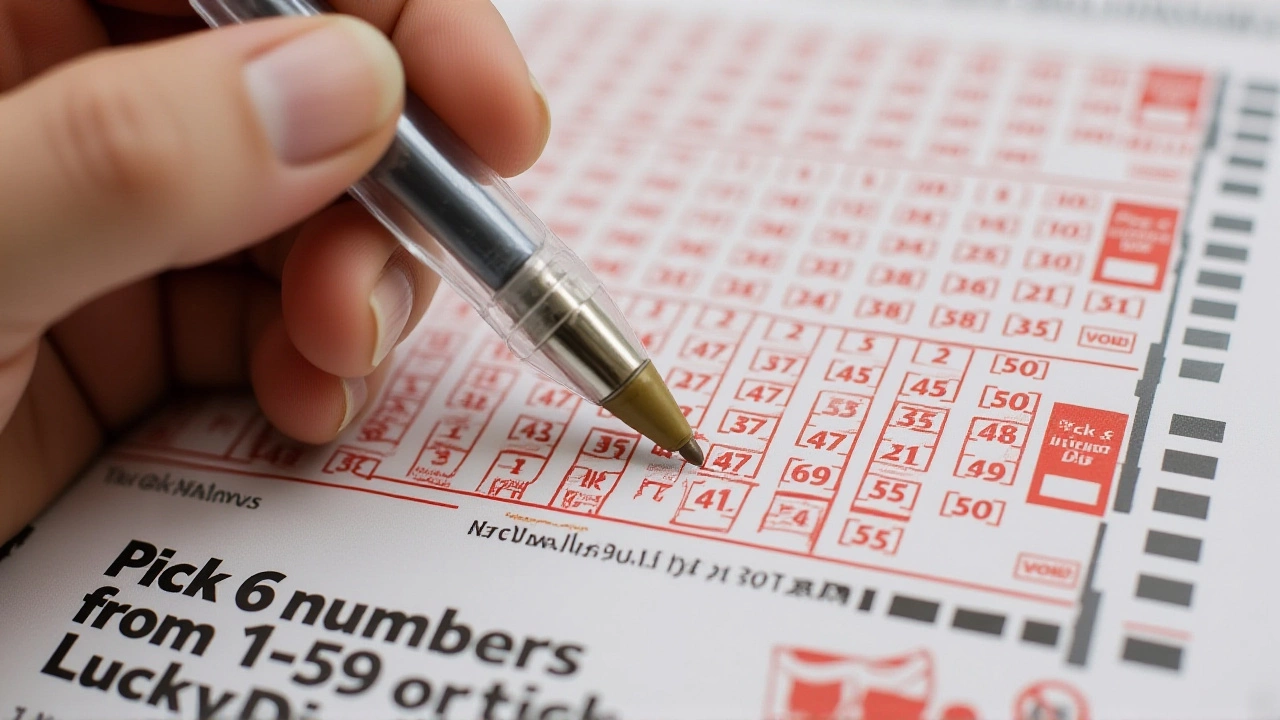When the EuroMillions draw Europe took place on Tuesday, 21 October 2025, the €39 million jackpot slipped through fingers across the continent — again. No one matched all five main numbers — 05, 24, 29, 40, 42 — and both Lucky Stars — 06 and 12. The result? A rollover. And with it, the pressure builds for Friday’s next draw. The The National Lottery, which oversees UK participation, confirmed the draw used Draw Machine 14 and Ball Set 20, both standard equipment but now steeped in the drama of near-misses. One lucky UK player, however, walked away with a guaranteed £1 million thanks to the Millionaire Maker code H K Z F 6 3 6 8 3. The rest? Millions of others got small change — and the dream of more.
Who Won What — And Who Almost Won Everything
The numbers don’t lie. While no one hit the jackpot, 1,315,280 people still walked away with prizes. That’s more than the population of some European capitals. The top tier below the jackpot — matching five main numbers without the Lucky Stars — had exactly four winners, each pocketing €155,906.73 (£104,575.60). That’s life-changing money, but it’s not €39 million. Then came 16 winners in the Match 4+2 category, each taking home €2,299.87. And the lower tiers? They were packed. Over 300,000 people won just €6.29 for matching two main numbers and one Lucky Star. Nearly 813,000 won €3.95 for two main numbers alone. It’s the lottery’s quiet magic: almost everyone wins something, but almost no one wins big.The Millionaire Maker: A Guaranteed UK Windfall
Here’s the twist: even when the main jackpot rolls over, The National Lottery still delivers a UK millionaire. Every Tuesday and Friday, one lucky UK ticket holder wins £1 million through the Millionaire Maker code. On 21 October, that code — H K Z F 6 3 6 8 3 — landed on a single ticket. No one knows who it was. No one will ever know unless they come forward. But the fact remains: while Europe waited for a billionaire, Britain got its guaranteed millionaire. It’s a clever marketing tool, a safety net for UK players who might otherwise feel like they’re playing a game rigged against them. The National Lottery’s ads promise "10 UK Millionaires" per week — and they deliver. Even when the jackpot doesn’t fall, they make sure someone still wins big.How the Rollover Works — And Why It Keeps Growing
The EuroMillions jackpot rolls over when no one matches all seven numbers. It’s not just a bonus — it’s a built-in engine of anticipation. The system allows the prize to climb until someone hits it, or until it hits the €240 million cap. That cap? It’s been breached twice in the last five years. The last record? £113.5 million on 26 September 2025, when the numbers were 04, 17, 25, 28, 44 with Lucky Stars 05 and 11. That draw had 27 winners across Europe. This one? Zero. The rollover pushes the next jackpot — Friday, 24 October — well beyond €39 million. Experts estimate it could reach €45 million by Friday. And if no one wins then? It keeps climbing. The psychological hook is real: people don’t just play for the money. They play because they believe *this time*, it could be them.The Operators Behind the Game
EuroMillions isn’t run by one company. It’s a consortium of nine national lotteries: The National Lottery (UK), Loterías y Apuestas del Estado (Spain), La Française des Jeux (France), plus operators in Austria, Belgium, Ireland, Luxembourg, Portugal, and Switzerland. Each handles sales and prize payouts in their own country. That means when the jackpot rolls over, it’s not just one lottery’s problem — it’s a continent-wide buildup. And when someone finally wins, the money flows out across borders. The draw itself is held in Paris, but the tickets are sold from London to Lisbon. It’s a rare example of pan-European cooperation — and one of the most profitable.
What’s Next — And Why Friday Matters
Friday’s draw isn’t just another lottery. It’s the next chapter in a story that’s been building for weeks. With the jackpot climbing, ticket sales surge. Convenience stores in Dublin report longer lines. Online retailers in Spain see traffic spikes. In the UK, The National Lottery’s website crashed briefly on Monday as people rushed to buy tickets before the Friday deadline. The media’s already calling it "the biggest draw since September." And if no one wins Friday? The jackpot will hit €50 million — the first time since last year. That’s when the real frenzy begins. The last time the jackpot crossed €100 million, over 100 million tickets were sold across Europe in a single week. We’re not there yet. But we’re getting close.Why This Matters — Beyond the Money
Lotteries are more than gambling. They’re social rituals. People buy tickets with friends, coworkers, family. They dream. They talk about what they’d do. The €39 million rollover isn’t just a number — it’s a shared fantasy. For many, it’s the only fantasy they can afford. The fact that 1.3 million people won *something* means the system still delivers joy, even when the big prize escapes. And yet — the gap between the winners and the nearly-winners is widening. In 2025, the average prize per winner is down 12% from 2023, while the jackpot keeps rising. That’s not an accident. It’s designed that way. The bigger the prize, the more people play. The more people play, the more the prize grows. It’s a cycle. And right now, it’s spinning faster than ever.Frequently Asked Questions
Why didn’t anyone win the EuroMillions jackpot on 21 October 2025?
No ticket matched all five main numbers (05, 24, 29, 40, 42) and both Lucky Stars (06, 12). While 1.3 million people won smaller prizes, the top-tier prize requires perfect matching — a one-in-139-million chance. The odds are brutal, and this draw was simply one of those rare moments where luck didn’t align.
How much will the jackpot be on Friday, 24 October 2025?
The jackpot is expected to reach approximately €45 million, up from €39 million. The exact amount depends on ticket sales and currency fluctuations, but historical rollover patterns suggest a 15-20% increase. If no one wins Friday, it could climb past €50 million by the following Tuesday — the first time since early 2025.
Who is eligible to win the UK Millionaire Maker prize?
Only players who buy a EuroMillions ticket in the United Kingdom are eligible. The Millionaire Maker code is printed on each ticket and is randomly generated. One UK ticket per draw wins £1 million — no matter the main jackpot. This is guaranteed by The National Lottery and is separate from the EuroMillions prize structure.
How often do EuroMillions jackpots roll over?
Rollovers happen in about 70% of draws. Since 2020, the jackpot has rolled over at least twice in a row 18 times. The longest streak was 11 consecutive rollovers in 2022, leading to a record €240 million win. This recent rollover is typical — not unusual, but part of the game’s design to build anticipation and boost ticket sales across Europe.
What happens if the jackpot reaches the cap?
Once the jackpot hits €240 million, it can’t grow further. If no one wins at that level, the prize "rolls down" — meaning it’s shared among winners in the next prize tier (Match 5+0). This happened in 2022 and 2023, leading to multiple €100 million payouts. The cap ensures the game stays fair and doesn’t become unsustainable.
Are the EuroMillions draws rigged?
No. The draws are independently audited and conducted using certified machines and ball sets under strict oversight by each participating country’s lottery authority. Draw Machine 14 and Ball Set 20 used on 21 October are regularly tested and certified by independent bodies like eCOGRA. The odds are mathematically fixed — and transparent. What’s rigged? The psychology. The system is designed to make you feel you’re close — and that’s what keeps you playing.
